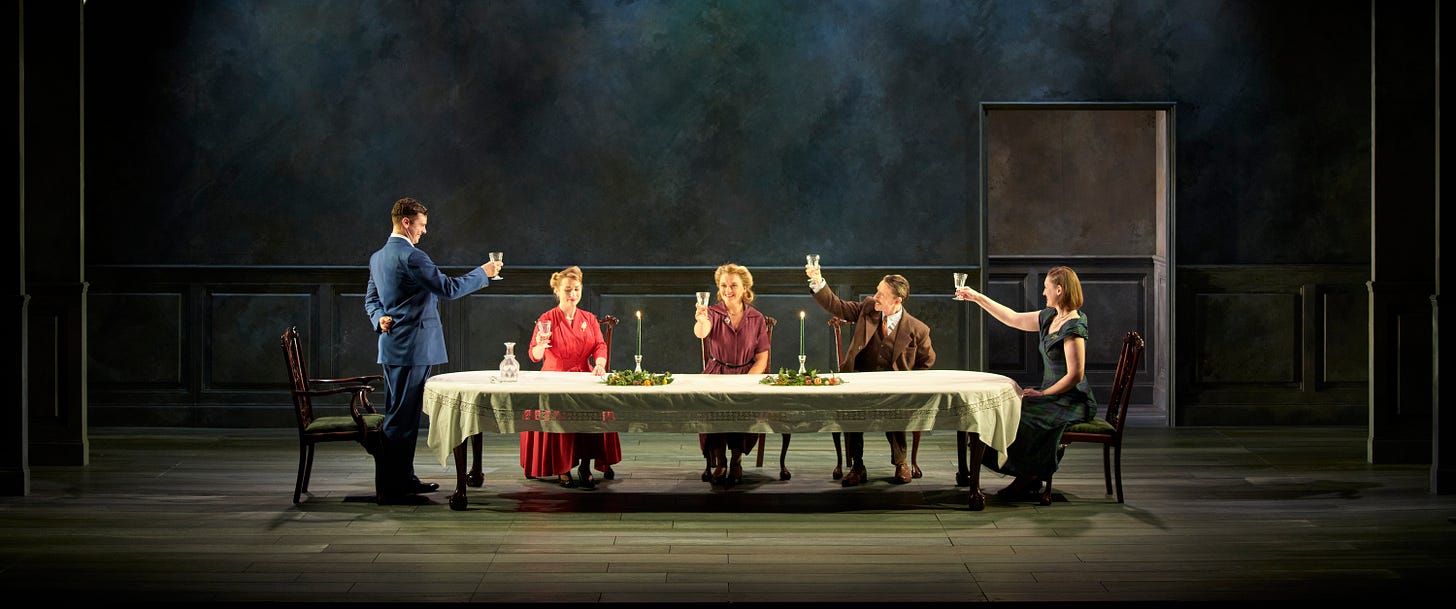The Long Christmas Dinner: Repetitive scenes form a dreary montage
Over 90 years, Thorton Wilder's play follows different generations of a family. Photo: Ros Kavanagh
Abbey Theatre - Peacock stage
★ ★
The highest accolade that can be attributed to Thorton Wilder’s 1931 play is that it inspired the famed montage in Citizen Kane. According to Orson Welles, the section where the film weaves in and out of nine years of Kane and his wife sitting at the breakfast table, their conversation growing embittered as they inch towards the end of their marriage, was unconsciously borrowed from Wilder.
That may say something about the innovation of The Long Christmas Dinner when it premiered, at a time when montage was relatively new in cinema. Wilder’s play, revived by the Abbey Theatre, takes place over 90 years, showing different generations of a family as they sit down to Christmas dinner. In short scenes that slip away just as they arrive, it’s difficult not to see it as pure conceit: a play that’s less a drama and more a storytelling technique in motion.
Things may have turned out differently if the characters were more than bystanders. At one point, Lucia (Valerie O’Connor) dotes over her young children, with her husband Roderick (Bryan Burroughs) joking about them growing up to join his business firm. She lovingly disagrees: “I don't want time to go any faster, thank you. I love the children just as they are.” The plot may fast-forward to see the children become adults (Fionnuala Gygax and Emmet Byrne), while the family loses members and gains new ones, but characters make sign-posted references to the passing of time (“Time certainly goes very fast in a great country like this,” observes someone) as if the nonspatial continuum were the play’s central character.
There is some sense in giving this to directors Sarah Jane Scaife and Raymond Keane, whose extraordinary productions of Samuel Beckett’s plays used Butoh-slow movement and sublime design to portray oblivion onstage. The desolate approach used here makes you wonder if the only visuals available are to send individuals through a lighted doorway when they perish, or to show them clinging restlessly to the house’s interiors in malcontent while alive, as splutteringly funny gestures signify the slicing of a Christmas turkey and sips from wineglasses.
There may be nods to a changing America, to expanding corporate greed and new cultural divides between generations, but the play’s constant chronal reflections make it repetitive, like the gloomy instrumentation of Aoife Kavanagh’s sound design that announces each scene. All the pieces form a dreary montage.
Runs until 31st December,




